As we journey through the passage of time, it becomes increasingly important to prioritize our health and well-being. Aging is a natural part of life, and with it comes unique nutritional needs that can greatly impact our quality of life. In this blog, we will explore the “Top 10 Foods You Should Eat as You Get Older,” focusing on the dietary choices that can help us age gracefully and maintain our vitality.
These foods are not only delicious but also packed with nutrients that support everything from bone health to brain function. They can help us navigate the challenges of aging with energy and resilience. From the nourishing benefits of leafy greens to the brain-boosting properties of berries, we will delve into the world of aging gracefully through the power of food. So, let’s embark on a journey to discover the key ingredients that can help us savor the later chapters of life with health, vigor, and a delectable appreciation for the joys of eating.
Top 10 Foods to Eat
Here are the Top 10 Foods to Eat: Nourish your body with these nutrient-rich choices, promoting health, vitality, and well-being at every stage of life.
1. Leafy Greens
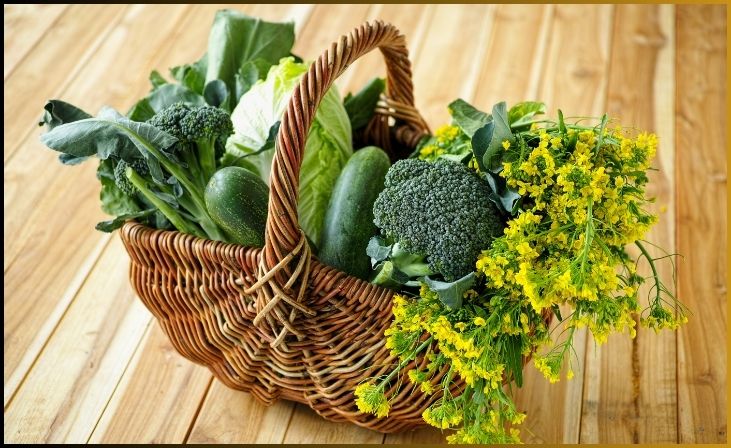
Leafy greens, including spinach, kale, and Swiss chard, are nutritional powerhouses that offer a multitude of health benefits. These vibrant, green vegetables are packed with essential vitamins and minerals such as vitamin A, vitamin C, vitamin K, and folate, making them ideal for supporting overall health as you age.
One of their primary advantages is their role in bone health. Leafy greens are rich in calcium, which is essential for maintaining strong bones and preventing age-related bone diseases such as osteoporosis. Additionally, they contain antioxidants that combat inflammation and oxidative stress, reducing the risk of chronic diseases. Their ability to support cognitive function and protect against age-related cognitive decline adds to their appeal. By incorporating leafy greens into your diet, you can enjoy their myriad benefits, from enhanced bone strength to improved mental clarity, as you gracefully embrace the aging process.
Also Read- 9 Best American Foods According to the Rest of the World
2. Berries

Berries, such as blueberries, strawberries, and raspberries, are small but mighty fruits renowned for their remarkable health benefits, particularly as we age. Packed with antioxidants, vitamins, and fiber, these vibrant and sweet-tasting gems offer a range of advantages that can enhance your overall well-being.
The antioxidants in berries, including anthocyanins and quercetin, help combat oxidative stress and inflammation, reducing the risk of chronic diseases that become more prevalent as we age. These antioxidants are particularly beneficial for brain health, potentially improving memory and cognitive function. Berries also support heart health by lowering blood pressure and cholesterol levels, reducing the risk of cardiovascular issues.
The high fiber content in berries aids in digestion and can help with weight management, a key concern for many seniors. Whether enjoyed fresh, in smoothies, or as toppings for yogurt or cereal, incorporating a variety of berries into your diet can add a delightful burst of flavor and a significant boost to your health as you navigate the journey of aging.
3. Fatty Fish

Fatty fish, such as salmon, mackerel, and sardines, are a vital addition to your diet, especially as you age. These fish are rich in omega-3 fatty acids, a type of healthy fat that offers a myriad of health benefits.
Omega-3 fatty acids are known for their role in supporting heart health. They can help reduce the risk of heart diseases by lowering triglycerides, reducing inflammation, and improving blood vessel function. For seniors, who are often at a higher risk for cardiovascular issues, incorporating fatty fish into their diet can be particularly advantageous.
These fatty acids also play a crucial role in brain health. Regular consumption of fatty fish can enhance cognitive function and protect against cognitive decline. Omega-3s have been associated with a reduced risk of age-related conditions such as Alzheimer’s disease.
4. Nuts and Seeds
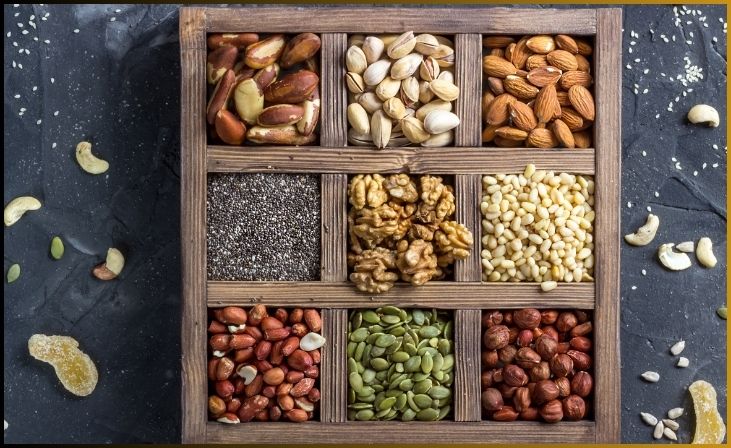
Nuts and seeds, such as almonds, walnuts, flaxseeds, and chia seeds, are compact nutritional powerhouses that offer an array of benefits, particularly for seniors. These tiny packages of goodness are packed with healthy fats, fiber, vitamins, and minerals.
One of the key advantages of nuts and seeds is their positive impact on heart health. They are known for their ability to reduce bad cholesterol levels and improve overall heart function. For seniors, maintaining cardiovascular health is of paramount importance, making these nutrient-rich snacks an excellent choice.
Nuts and seeds also support weight management, a concern for many older adults. Their combination of healthy fats, protein, and fiber provides a sense of fullness, helping to control appetite and reduce overeating.
5. Whole Grains

Whole grains, such as quinoa, brown rice, and oats, are an indispensable component of a healthy diet, especially as we age. These grains are unique in that they contain all parts of the grain, including the bran, germ, and endosperm, preserving their full nutritional value.
One of the primary advantages of whole grains is their role in blood sugar regulation. They have a lower glycemic index than refined grains, meaning they release glucose more slowly into the bloodstream. This helps prevent rapid spikes and crashes in blood sugar levels, which can be particularly important for seniors concerned about blood sugar control and the risk of type 2 diabetes.
Whole grains also provide sustained energy, making them an ideal choice for maintaining vitality throughout the day. They are high in dietary fiber, which supports digestive health and helps prevent constipation, a common issue for many older adults.
6. Lean Proteins
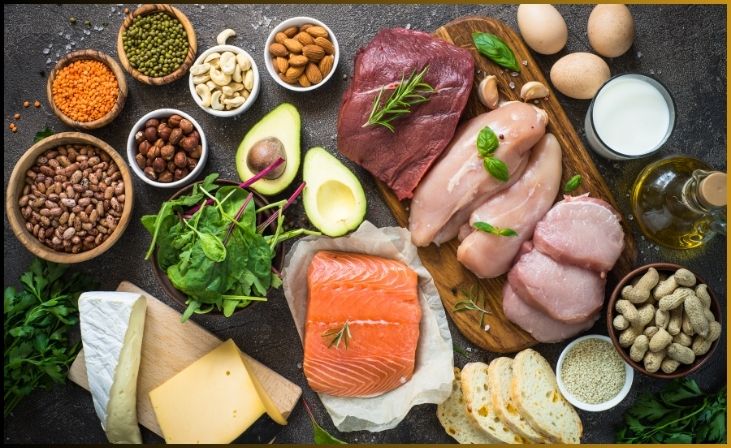
Lean proteins, including options like chicken, turkey, fish, and plant-based sources such as tofu and legumes, are essential for maintaining health as we age. These protein sources provide amino acids, which are the building blocks of muscle tissue.
One of the primary benefits of consuming lean proteins is the preservation of muscle mass. As we grow older, there is a natural decline in muscle mass, a condition known as sarcopenia. Including adequate protein in your diet can help counteract this muscle loss, supporting physical strength and overall vitality.
Proteins also play a crucial role in wound healing, immune function, and hormone production. They are essential for maintaining skin and tissue integrity, and they contribute to an overall sense of well-being. As we age, ensuring an adequate intake of lean proteins is paramount to sustaining health and a high quality of life.
7. Dairy or Dairy Alternatives
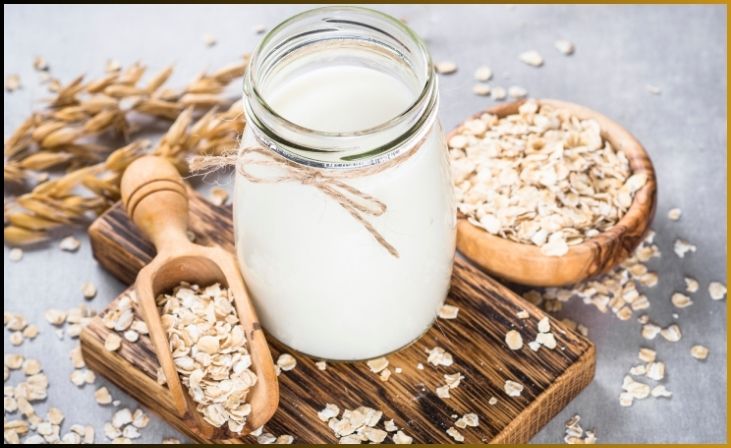
Dairy products or dairy alternatives like almond or soy milk are valuable components of a balanced diet, especially as we age. These options provide vital nutrients that are important for maintaining overall health and addressing specific concerns for older adults.
Calcium and vitamin D, found in dairy products, are essential for maintaining strong bones. With the risk of osteoporosis and fractures increasing as we age, ensuring an adequate intake of these nutrients becomes crucial. Dairy alternatives, often fortified with calcium and vitamin D, offer a solution for those who may be lactose intolerant or choose a plant-based diet.
In addition to bone health, dairy products contain high-quality protein, which supports muscle health, another critical aspect of well-being as we grow older. Protein intake can also aid in wound healing and immune function.
8. Avocado
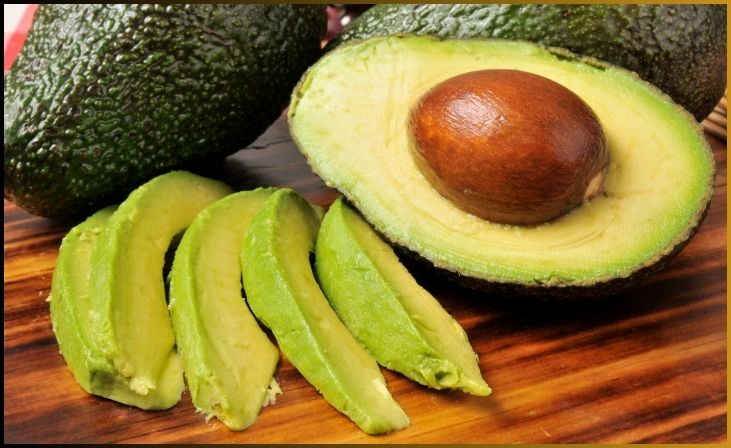
Avocado, often referred to as “nature’s butter,” is a nutrient-dense fruit that offers a wealth of health benefits, making it a valuable addition to your diet as you age. These creamy, green delights are rich in monounsaturated fats, which are heart-healthy and can help lower bad cholesterol levels, reducing the risk of heart disease.
But avocados have more to offer than just heart health. They are a great source of essential fatty acids that support brain health, contributing to cognitive function and potentially protecting against cognitive decline, a common concern in aging.
Avocado is also a rich source of potassium, which helps regulate blood pressure, a vital aspect of senior health. For older adults, maintaining cardiovascular health is paramount, and incorporating foods like avocados into your diet can be a delicious way to achieve this goal.
9. Colorful Vegetables
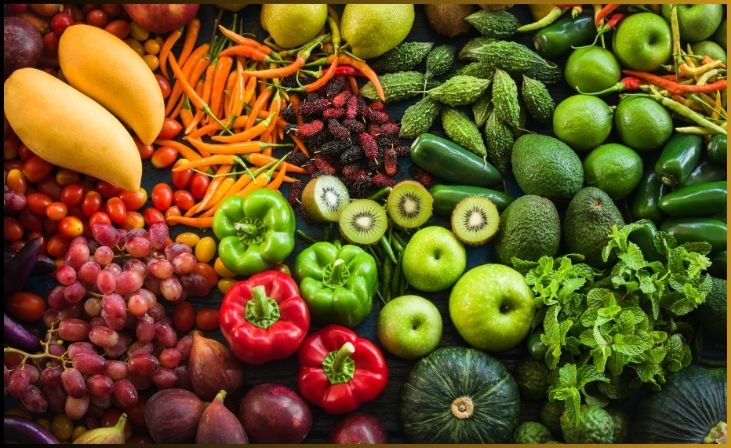
Colorful vegetables, including carrots, bell peppers, and sweet potatoes, are not only visually appealing but also highly nutritious, making them an essential part of a healthy diet as you age. These vegetables get their vibrant colors from a variety of antioxidants, each offering unique health benefits.
One of the primary advantages of consuming colorful vegetables is their positive impact on eye health. The carotenoids present in orange and yellow vegetables, such as carrots and sweet potatoes, are essential for maintaining good vision, reducing the risk of age-related eye conditions like macular degeneration and cataracts.
These vegetables are also rich in vitamins and antioxidants that support the immune system and protect against chronic diseases. Their diverse nutrients promote overall well-being, helping you stay active and energized as you grow older.
For More- 10 Best Fast-Food Burgers In America: Satisfy Your Cravings
10. Tea

Tea, encompassing varieties such as green and black tea, has been celebrated for its numerous health benefits and has a well-deserved place in the diets of those embracing the aging process. The key to the positive impact of tea lies in its high content of antioxidants and various bioactive compounds.
Tea is known for its ability to improve heart health. It can reduce the risk of heart diseases by lowering bad cholesterol levels and supporting overall cardiovascular function. For older adults, maintaining a healthy heart is a top priority, making tea an excellent choice.
Beyond heart health, tea is beneficial for brain function. The combination of caffeine and an amino acid called L-theanine in tea can enhance cognitive function, improving alertness and mental clarity.
Conclusion
As we age, maintaining good health becomes a priority, and a balanced diet plays a crucial role in achieving this goal. The top 10 foods listed here offer a wide range of nutrients that can help you age gracefully, maintain vitality, and reduce the risk of chronic diseases. By incorporating these foods into your diet, you’ll be providing your body with the support it needs to enjoy a vibrant and active life as you grow older. It’s never too late to make positive dietary changes, and the benefits of these foods extend far beyond physical health, contributing to a sense of well-being and overall quality of life. So, embrace these foods and savor the journey of healthy aging.
FAQs
These foods are nutrient-rich and offer various health benefits, addressing specific concerns related to aging, such as bone health, heart health, cognitive function, and immune support.
Yes, most of these foods can be easily integrated into your meals, making it convenient to adopt a healthier diet as you age.
Serving sizes can vary depending on individual needs and dietary goals. It’s essential to consult with a healthcare professional or nutritionist to determine the right portions for your specific situation.
Many of these foods are readily available in grocery stores, making them accessible for most people. Dairy alternatives, for example, are increasingly common in many markets.
You can explore different recipes and cooking methods to keep your meals interesting. For example, you can try various salad combinations with leafy greens or experiment with different types of berries in your morning cereal or smoothie.







